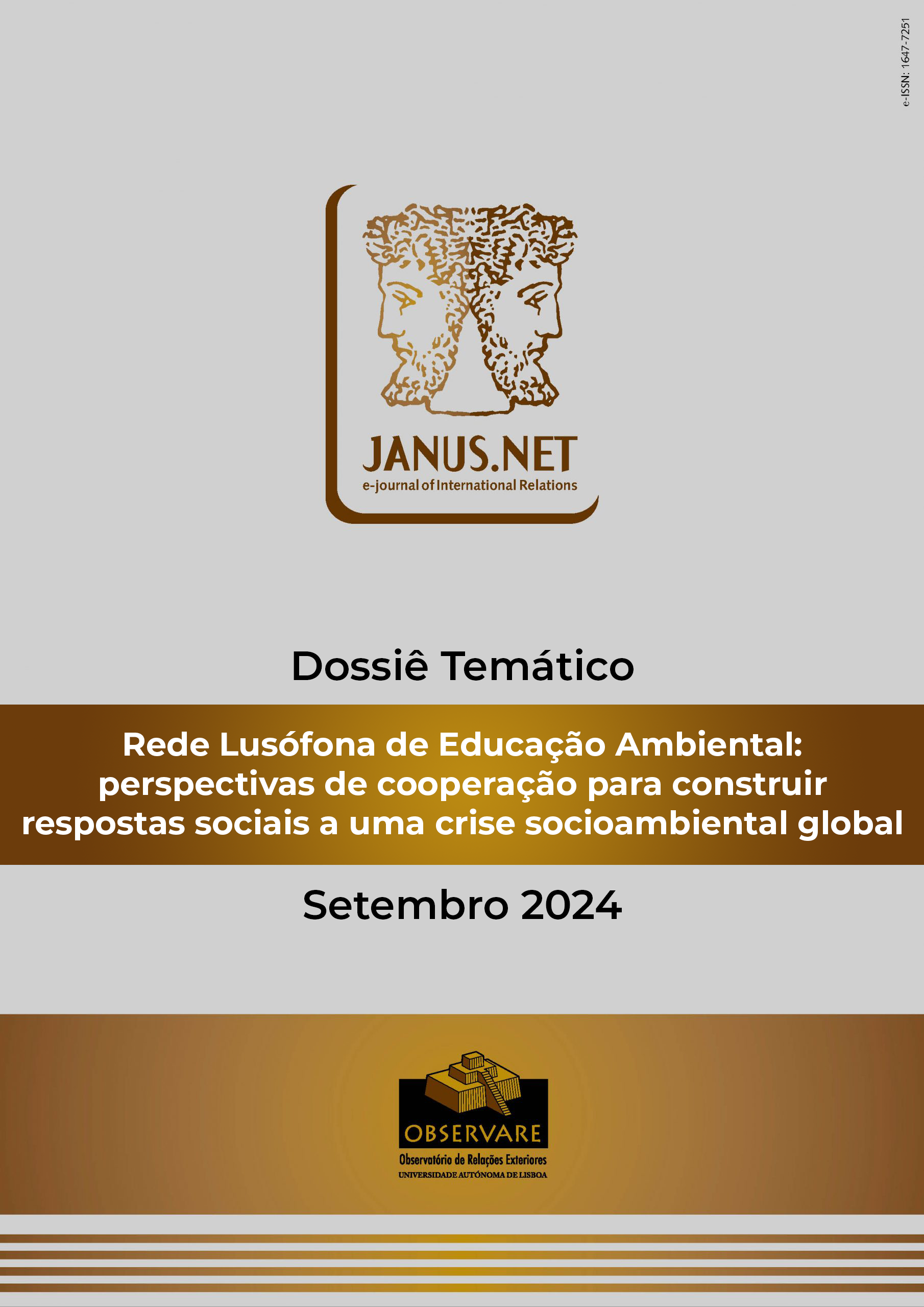REDE LUSÓFONA DE EDUCAÇÃO AMBIENTAL: DA “COOPERAÇÃO” À CONSTRUÇÃO DE UMA PERSPETIVA DE “COCRIAÇÃO” A PARTIR DA ANÁLISE DE SEIS CONGRESSOS INTERNACIONAIS (2007-2021)
DOI:
https://doi.org/10.26619/1647-7251.DT0224.2Keywords:
Environmental Education, Lusophone Network, Congresses, Cooperation, Co-creationAbstract
The International Congress on Environmental Education (EE) in Portuguese-speaking Countries and Galicia came about in 2007 out of the desire and need for permanent coordination between Angola, Brazil, Cape Verde, Guinea-Bissau, Mozambique, Portugal, São Tomé and Príncipe, East Timor (the countries that made up the CPLP at the time) and the autonomous community of Galicia (Spain). Promoting environmental education is an ambitious and necessary challenge for those who want to help build a better relationship between nature and society. We were therefore interested in analyzing the results of a series of international environmental education congresses held in different countries between 2007 and 2021 in order to understand their characteristics and their potential for cooperation and co-creation within the Lusophone context. The methodology used in this research was based on analyzing the available data on the profile of the participants in the congresses, the collaborating institutions and the actions recorded in each event. The documentary analysis was based on the information provided by the congress organizers in their final reports and in the programs of each edition available on the congress website and other documents made available by the groups responsible. The results obtained indicate that the congresses show a maturing of the actions of the Lusophone Network for Environmental Education, both in terms of the level of individual and institutional participation, an advance in the processes of international cooperation and the existence of a potential for co-creation in order to tackle a global socio-environmental crisis.


